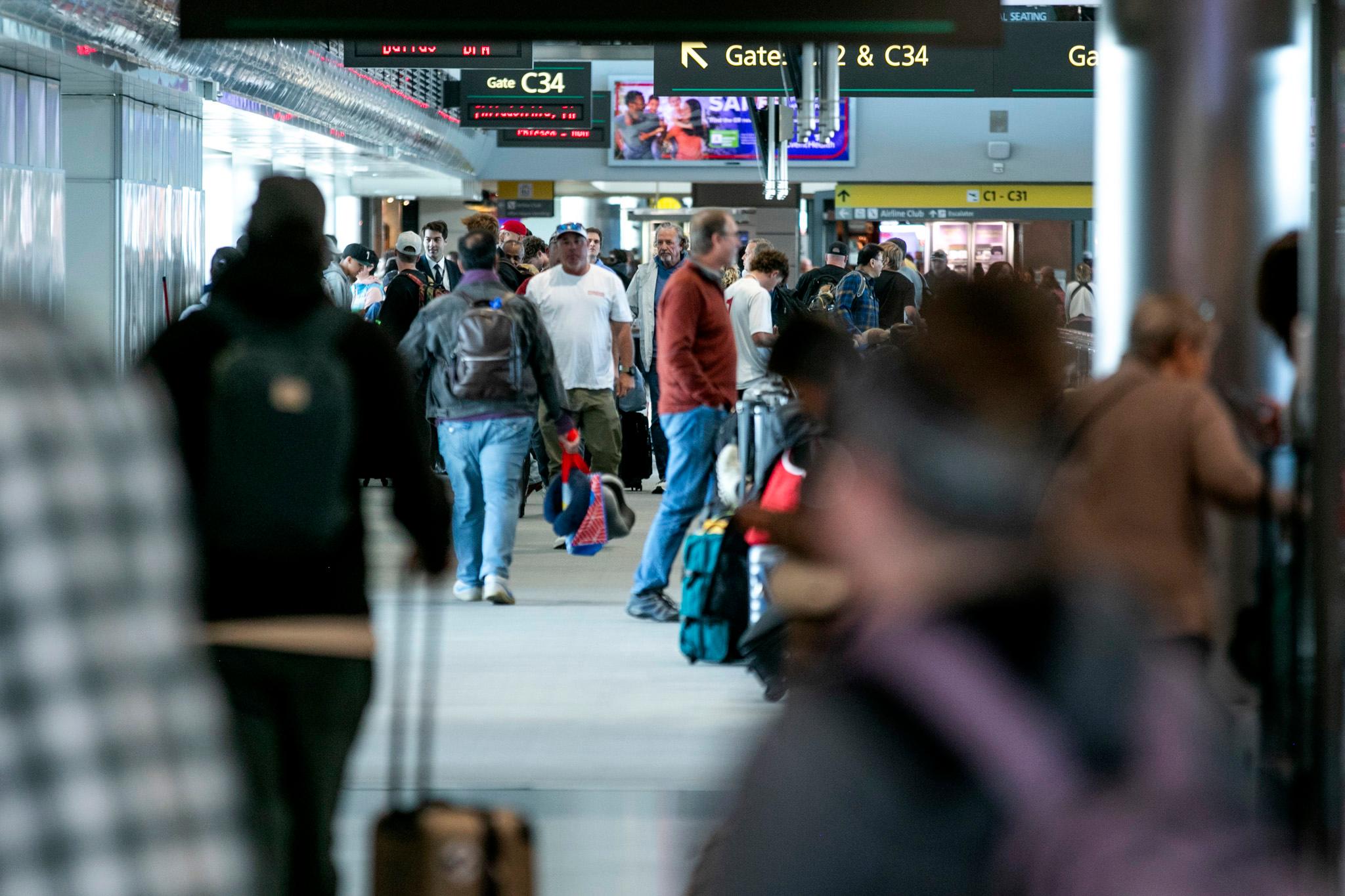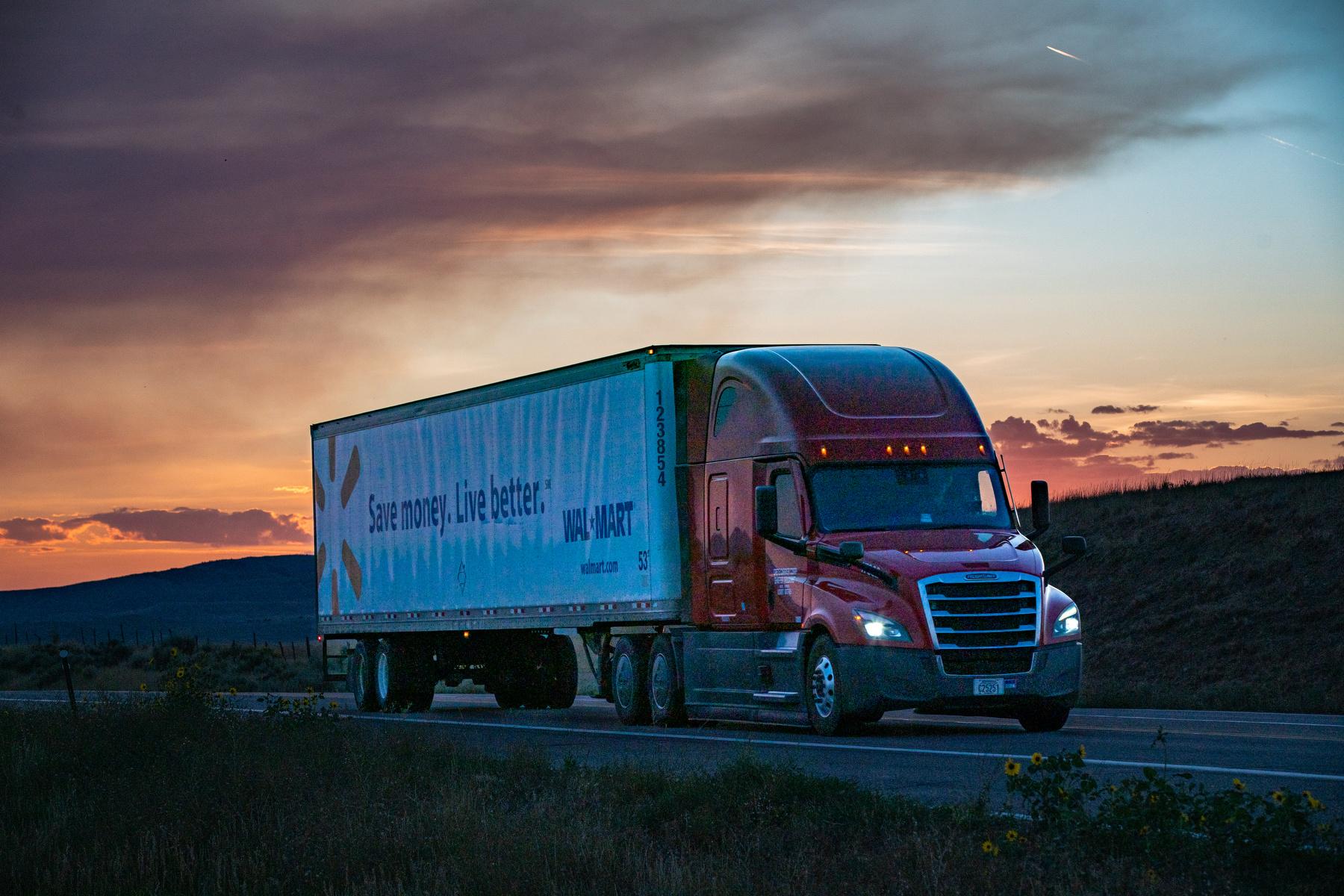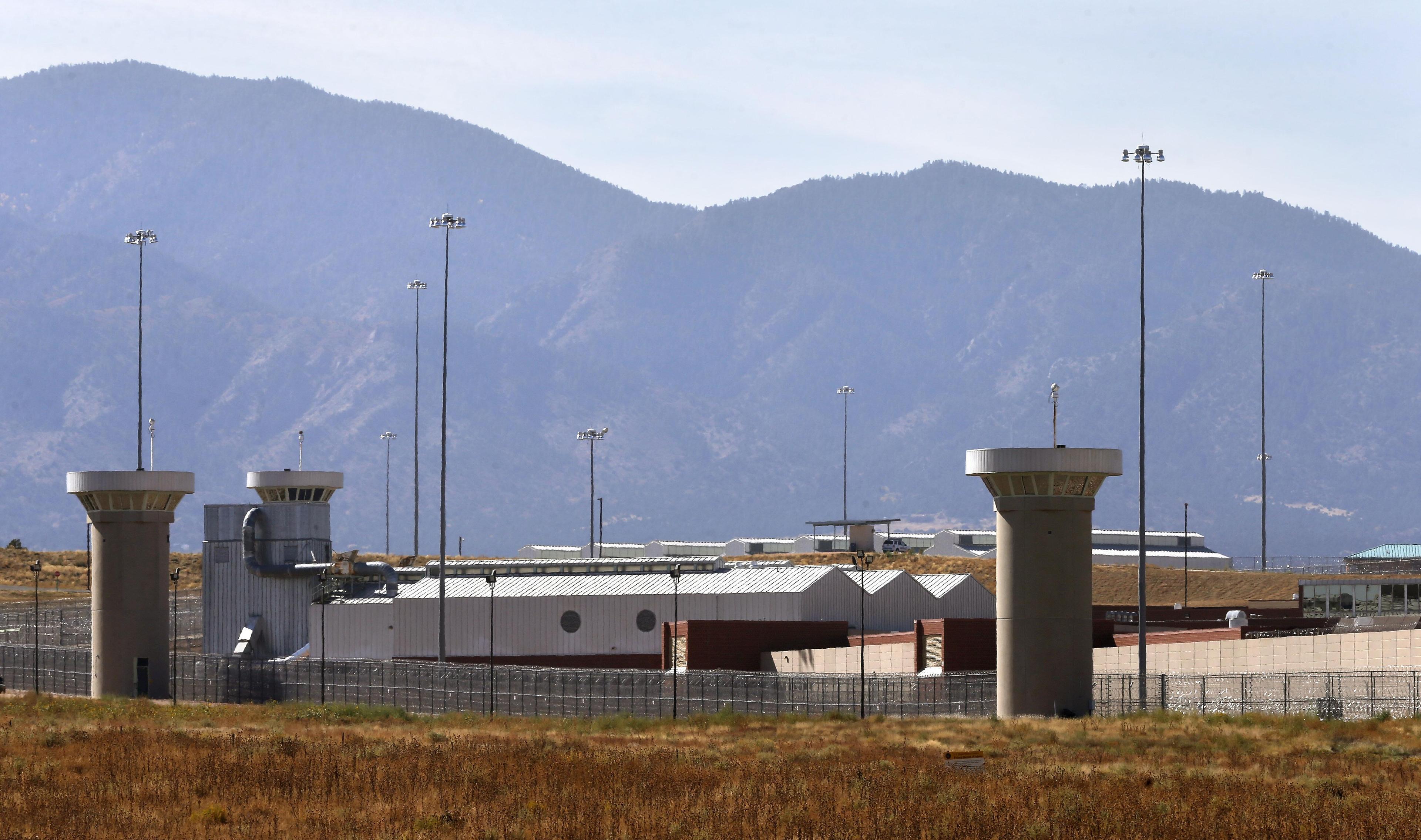
Colorado won the bid to host the 1976 Winter Olympics but then collectively said, “no thanks.” But now, Denver has formed a committee and plan called Sharing The Gold to explore whether the city and Colorado should bid to host the Winter Olympics in 2030.
Gov. John Hickenlooper, who’s part of the effort, says, “I see the benefits more clearly than I see the downsides" to hosting the games.
Rob Cohen, CEO of IMA Financial, leads the committee but insists the group wants to be sure “we really have a good pulse on what everybody in the state of Colorado is interested in” before moving ahead. That’s where Tony Pigford of Denver comes in. A member of the newly-formed NOlympic committee, he tells Colorado Matters why the group is planning a ballot initiative to let Colorado voters decide if they want to play host.
Read The Transcript:
Ryan Warner: This is Colorado Matters from CPR News. I'm Ryan Warner. The Winter Olympics are top of mind for Tony Pigford of Denver. Not so much this year's games, he's thinking about Denver's potential bid for the 2030 events and he is adamantly opposed. Pigford's a member of the newly formed "Nolympic" Committee that's planning a ballot initiative that would let Colorado voters decide if they want to host and Tony, welcome to the program. Tony Pigford: Thanks for having me. RW: Absolutely. By day you help lead a charter school in Denver. You're actually joining us from the school now. You're part of this opposition group. I'll say the Governor and Denver's Mayor put together a 2030 exploratory committee, which has not come to a decision yet. What's the biggest reason you don't want Colorado to host the Winter Games? TP: I think it would be a tremendous risk and potentially a loss of billions of dollars for city and state taxpayers. It would potentially exacerbate inequity in our city and region. Really when I think about this, the true measure of the health of any city or state is how we treat our most vulnerable and we already have policy to a certain extent that makes the plight of our most vulnerable and marginalized harder. To prioritize a mega-project that directs billions of dollars that won't benefit the common good, that will benefit corporations, politicians and high net worth individuals, morally for me is the wrong direction to go right now. RW: You talk about inequity. I think part of what I'm hearing from you is your concerns about gentrification in the metro area, this squeezing out, the displacement of people. TP: Yes, I'm very concerned about that and my concern started back in 2015 after the local election in Denver where seven new city council members were elected and before they got sworn in, the lame duck city council pushed through a bunch of mega-projects that are now housed in what's called the North Denver Cornerstone Collaborative. That's the I-70 Expansion, the Stock Show redevelopment, there's six big projects involved in that. So that's when I started to be more attuned to what these mega-projects do to local communities. What do they do to low income communities of color and gentrification, unfortunately, and forced displacement is a big part of that. On top of damage to the environment, et cetera. RW: I spoke recently with Rob Cohen, who leads the exploratory committee and he listed what he sees as positives that would come from hosting the Games. Voice of Rob Cohen: Having events like this is something that communities rally around and create excitement for them and pride in their community. It has economic benefits, obviously if people come here and spend money that we can then utilize to help our own community. RW: We'll talk about the economics in just a bit, but to that idea of the Olympics creating pride in a community, do you think that would be the case? TP: To a degree. I think that there are a lot of positive things that happen in Denver and in our state, that need showcased. Denver is a really great city, but you have to think about who it's been great for. Has there been equity at the core of our growth? Sure, would there be rallying around the Olympics and excitement? Yes. We can get into the economics later. There wouldn't be any long term financial benefit and there's the potential of losing billions and billions of dollars. To have a really cool three week party that highlights our city and state, to a degree that's neat, but if we're concerned about equity and equal access and vibrancy for everybody in Colorado, that isn't enough for me, a three week Olympic party just won't cut it. RW: One theme I'm hearing from you is risk and yet one argument in favor of the Games is that they'd be paid for with private funding, at least according to the exploratory committee, that taxpayers wouldn't be on the hook. Here's Janice Sinden at one of the online community meetings that the Committee held. Voice of Janice Sinden: There should not be any tax burden left to any government, whether it's the state, a local government, a municipality, and also any impact on those local communities should be included in the overall budget and cost for putting the Games on. The US cities that have hosted either Summer or Winter Olympics since 1960 have not been saddled with any debt. They have actually, several have seen a legacy fund established based on revenues that went above what they needed. RW: That was true for Los Angeles, for instance, which ended with a surplus. So, let's get into the risk. Let's get into the economics of this. What do you base your concerns on? TP: Well, Los Angeles is the outlier. That is the only time that you can say what you said about the cost of the Olympics. I would love everybody to look at a University of Oxford study about the cost and to say that no public money would be spent is ridiculous, and the proof is in the pudding. The IOC requires that the host city sign a document that states the host city will cover the cost of overruns. Every other Olympics has required the taxpayer guarantee, with the exception of Los Angeles. So local and state taxpayers will end up paying for the overruns. The Olympics have the highest average cost overrun of any type of mega-project. Cost overruns have been found in all Games without exception. There's no other type of mega-project in this case like that. Forty-seven percent of the Games have cost overruns above 100 percent. So her statement was that that should not happen, and I agree, it should not happen, as far as city and state taxpayers picking up the bill. But when you look at the history of the Olympics, that's been the norm. RW: But, Tony, is that the sort of old model of the Games, where there was a lot of construction of new facilities, often facilities that in the years after the Games sat empty, versus the goals of a more streamlined Olympics these days, to use existing facilities, or even ones that are temporary and can be torn down. I suppose, advocates for the games would say, you're basing that on an old model, when they come to town. What do you say? TP: You know, I can understand that to a degree, but I haven't seen the new model executed, and I don't know if this is the time in our city and state history to be the pioneers of creating this new model, when we've got a lot of major, crisis-level issues that we need to address. I haven't seen it. I'm a fourth-generation Denverite. I've never attended the Olympics, but we would need to build significant infrastructure. One thing that's frustrating is that our city and state leaders propose that there will be housing created from this, like the athlete housing could be used to help us with our crisis. We're desperate for affordable housing here, in the region, in the state, and we have a crisis, and that small affordable housing, 500 to 1000 dorm room-style units in 12 years, after the Olympics, doesn't address our current needs. We need 30,000 units yesterday, and that's just in Denver, and not throughout the region. And so, for me, at the base of this, this is about priorities, and we shouldn't be prioritizing very high-risk mega-projects, and chartering this new, pioneering way of doing this different than it's ever been done before. Not now, and possibly not ever. RW: You're listening to Colorado Matters. I'm Ryan Warner, and my guest is Tony Pigford. He's part of the newly-formed "NOlympics" Colorado Committee. And it seems, Tony, in some regards, your view of the Olympics is based on the idea that the city can't walk and chew gum. That is, you can't create affordable housing and do the Olympics in any meaningful way. It sounds like you doubt the city has the capacity to take this on, and address its issues. Is that fair? TP: That is fair, and sometimes if you have the capacity to take on an issue, that doesn't mean you should take it on. You should prioritize what is most important, and in my view, the common good, and the most vulnerable and most marginalized in our community should be at the top of that priority list. So it isn't really, for me, an idea about capability of our city, but I also have reservations there because I feel like we've mismanaged our growth already, and we've shown historically that we're struggling with absorbing the amount of people that are coming here, and still creating an equitable and vibrant community. So I think we do have a track record that, I guess, leans towards that way, that we aren't capable of doing both. RW: You talked about the need for significant infrastructure if the Olympics come. I remember talking to governor Hickenlooper about this, and he said, "Listen, there are weekends in the Metro area where there are three festivals going on, say in the summer, that represent approximately the number of people who would be here for the Olympics." What do you base that assertion on, that there would need to be significant infrastructure investments? TP: I'm looking at existing projects that are already part of the North Denver Cornerstone Collaborative and other projects. We've got a $1.5 billion DIA Gate expansion on deck; $1.9 billion, and this includes finance cost, which they won't talk much about, but for the National Western Complex; potentially $2.35 billion for the I-70 expansion; $68 million to upgrade the 16th Street Mall. I could go on. $400 million for the Platte to Park Hill storm water project that is to protect I-70 from flooding, and protect the Stock Shore Redevelopment from flooding. And these are all, and we're getting more information about this, projects that have been in conversation with planning for the Olympics. This Olympics conversation has been going on for quite some time, although the newly formed committee will tell you they've just recently been working on this. But I'm already seeing projects that will be used to bring the Olympics here. RW: Colorado turned down the '76 Winter Olympics after winning the bid, and I will say that that was achieved by a popular vote, and so let's talk about a big goal of your "NOlympics" movement, which is, I guess, to put a bid to the vote of the people. Just briefly, how would that work? TP: Well, we're looking into that. It's a lever that we'll use if we need to. We're hoping that we can educate as many people about this, as well as the Olympic Committee themselves, to not move forward with a bid. Ideally, we'd approach the state legislature, and get a vote on the ballot in November. We have a huge election coming up anyway. But we think that we should let the people speak on an issue that could cost city and state taxpayers billions and billions of dollars, and exacerbate inequity. We're just forming this NOlympics group in an effort to oppose this potential Olympic bid, and a vote to the people is something we're considering very seriously. I think it's always best to let the people speak on important issues. RW: I'll say, the exploratory committee has been trying to engage the public, as I said, with public forums. They had an online survey, although it was changed after complaints that it was too "rah, rah!" In about the last 20 seconds, Tony, from what I hear, it sounds like you think they've made up their mind, despite the fact that they say this is just a process of gathering information. Very briefly. TP: Yes, I think they have. I think meetings have been going on for quite some time. I think that the community outreach now has been hollow. I attended a meeting at a public building where I was told not to record any video, and the public wasn't invited. So I would be surprised if they did cease moving forward with this. It does seem like it's been in the plans for a long time and it has not included the people's voice which is unfortunate. RW: Tony Pigford, part of the newly formed "NOlympics" Colorado Committee. And you can check out our conversation with the exploratory committee's head for a different view. This is Colorado Matters from CPR News. |
Related:









